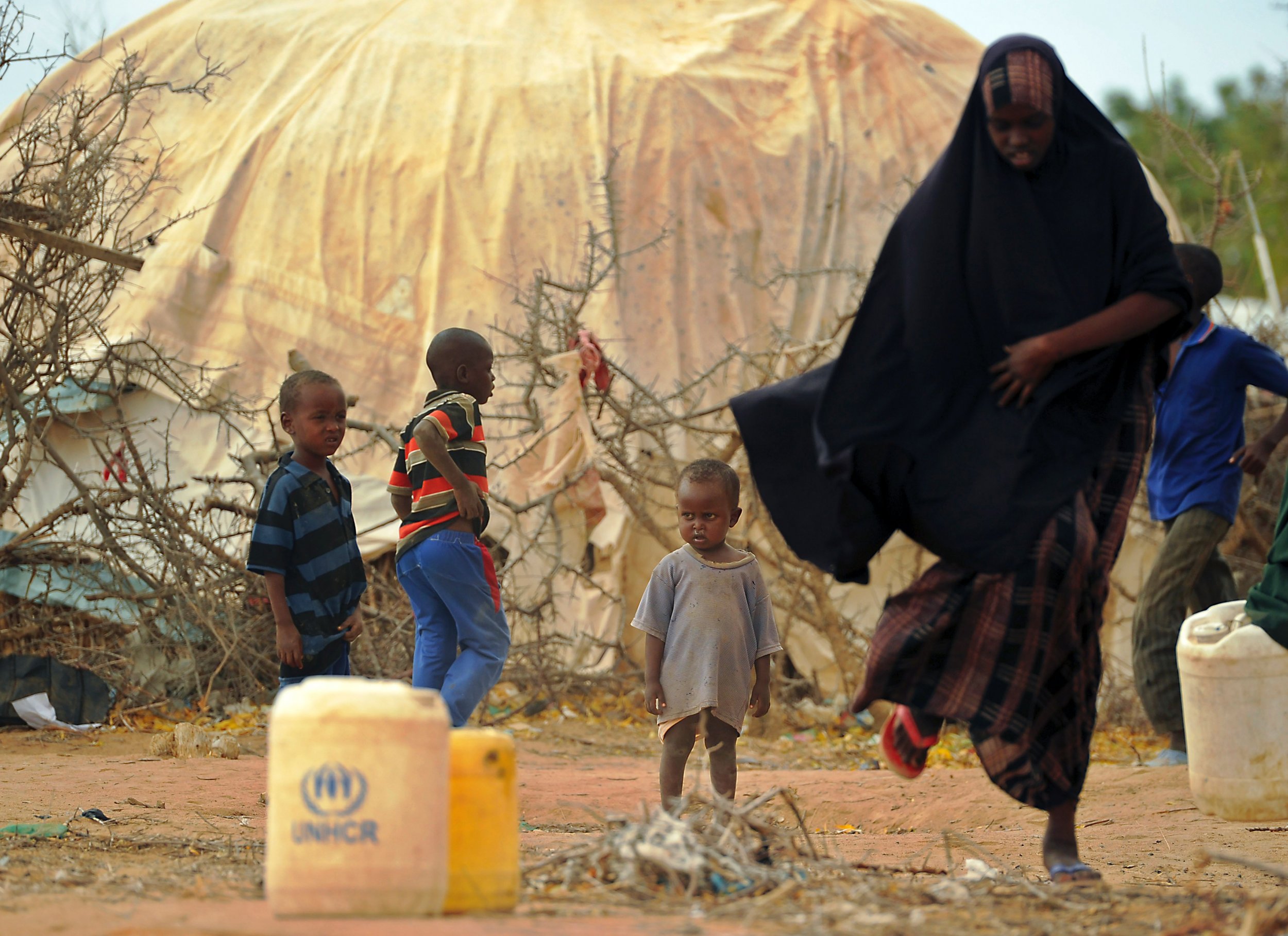
Kenyan and Somali authorities must provide "something better" if the world's biggest refugee complex is to be closed, according to former British foreign minister David Miliband.
Kenya announced earlier this year that it intended to close the Dadaab refugee camps, which housed more than 300,000, mostly Somali, refugees at the time of the announcement.
Authorities in Kenya intended to shut the camps by the end of November, but the country's interior minister, Joseph Nkaisserry, said Wednesday that the closure had been postponed by six months following a request from the head of the U.N. Refugee Agency, Filippo Grandi.
Speaking to Newsweek Thursday, Miliband—who now heads up humanitarian group the International Rescue Committee (IRC)—says that his position on Dadaab's closure remains the same as when he visited the complex in May.
"If it is to be closed, then there needs to be something better, both for the people in it and for the people in the surrounding areas," says Miliband.
Kenya's decision to close the camps—which were set up in 1991 to accommodate refugees fleeing civil war in neighboring Somalia—has been met with concern from human rights groups. Human Rights Watch (HRW) said in September that the repatriation process "does not meet international standards" and that thousands of Somali refugees felt pressurized to leave the camps.
Somalia remains a fragile country. More than 20,000 African Union peacekeepers are deployed alongside Somali national forces to fight the Islamist group Al-Shabab, which has ties to al-Qaeda. Somali Prime Minister Omar Ali Sharmarke told Newsweek that, while the country wanted its people back, "dumping" them in Somalia could "create a lot of discontent."
Miliband says that Kenya's decision to close the complex was a "wake-up call for the international community and that Dadaab's history had been "marked by a series of short-term supports" and that a "long-term deal" was needed to assist its residents.
In an emailed statement Thursday, the IRC said that it was not opposed in principle to the closure of the camps but that it strongly opposed involuntary repatriation. The successful resettlement of Somali refugees would require "large-scale, long-term investment" in the Horn of Africa country, according to the IRC.
In Wednesday's statement, Nkaisserry said that the Kenyan government was committed to a "humane, safe and dignified" process of repatriation and that the country was committed to "upholding international law" throughout the closure of the camps.
The Dadaab refugee complex is overseen by the Tripartite Commission, consisting of Kenyan, Somali and U.N. officials. In its original announcement of the decision to close the camps, the Kenyan interior ministry stated that the Dadaab complex had become a "hosting ground" for Al-Shabab militants, who were plotting attacks on Kenyan soil.
Kenya has previously vowed to close the Dadaab complex, which lies just 62 miles from Dadaab, after Al-Shabab claimed responsibility for an attack at a university in Garissa, in which almost 150 people were killed, only to later back down from the decision under international pressure.
Uncommon Knowledge
Newsweek is committed to challenging conventional wisdom and finding connections in the search for common ground.
Newsweek is committed to challenging conventional wisdom and finding connections in the search for common ground.
About the writer
Conor is a staff writer for Newsweek covering Africa, with a focus on Nigeria, security and conflict.
To read how Newsweek uses AI as a newsroom tool, Click here.








